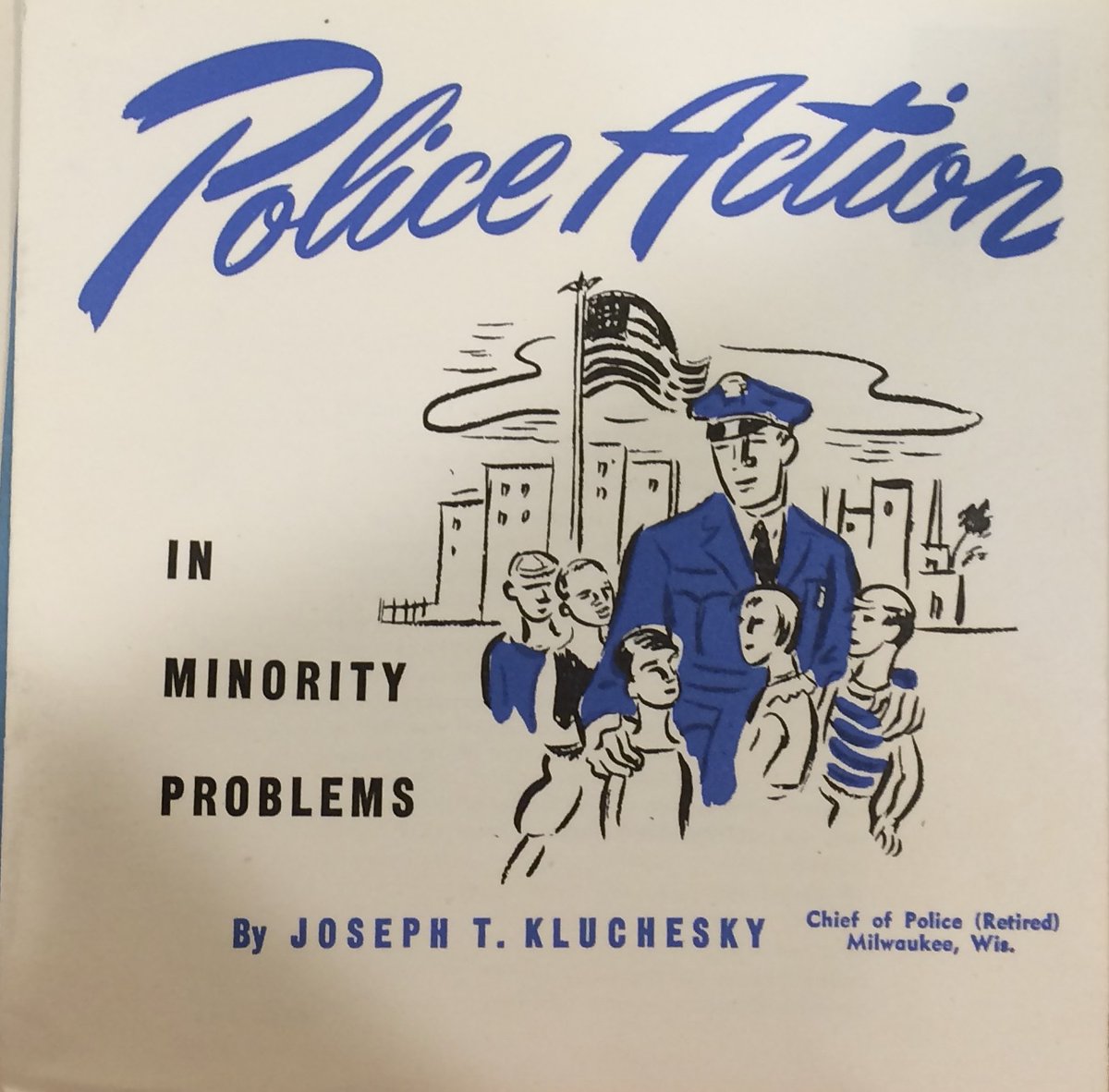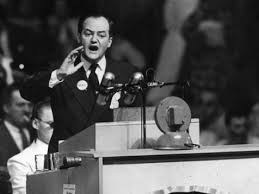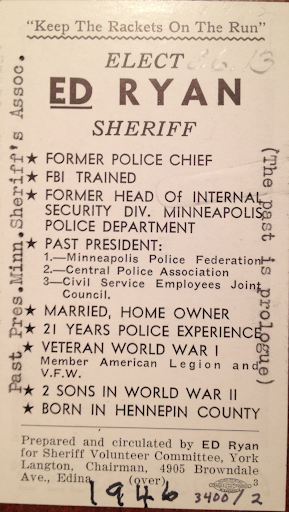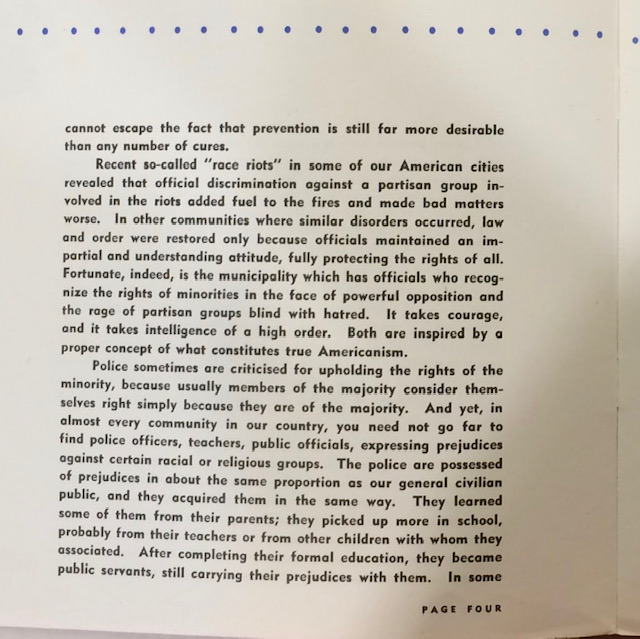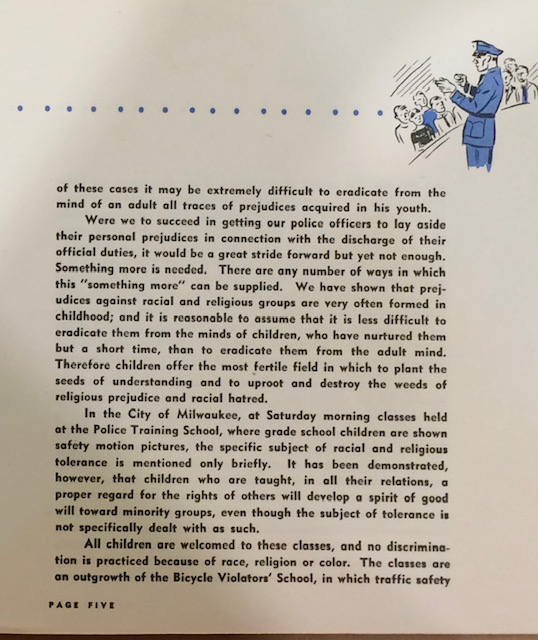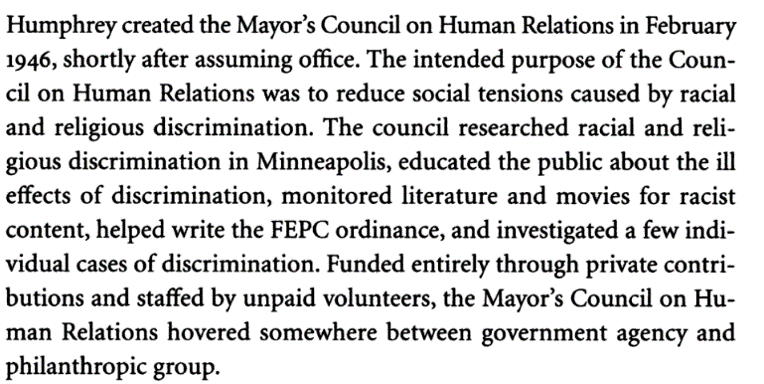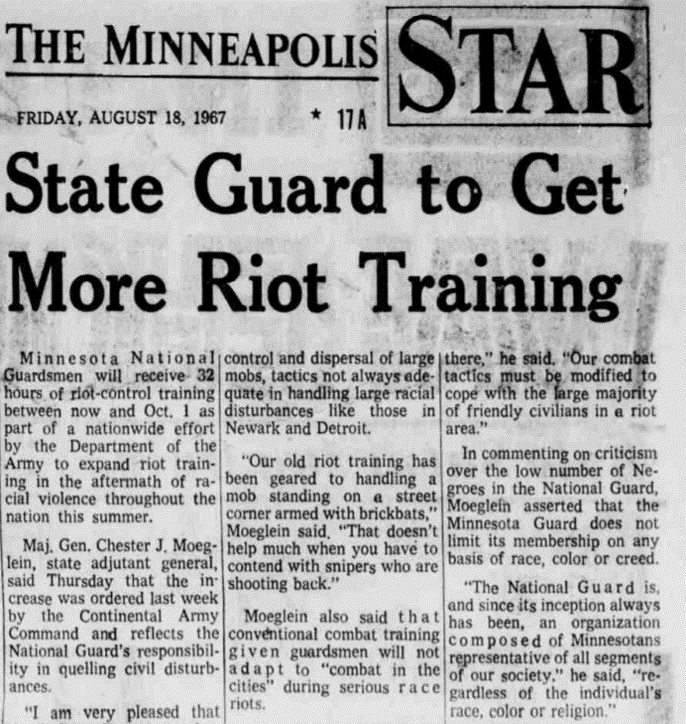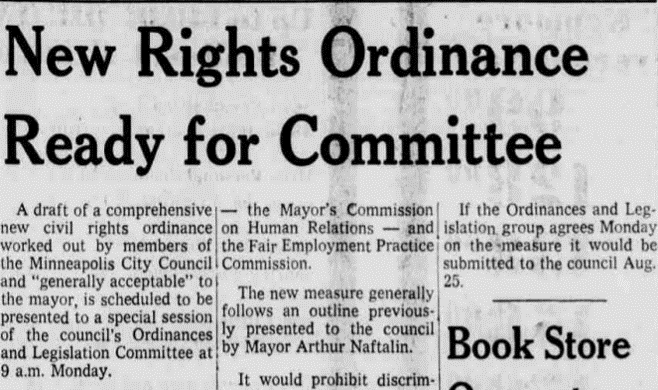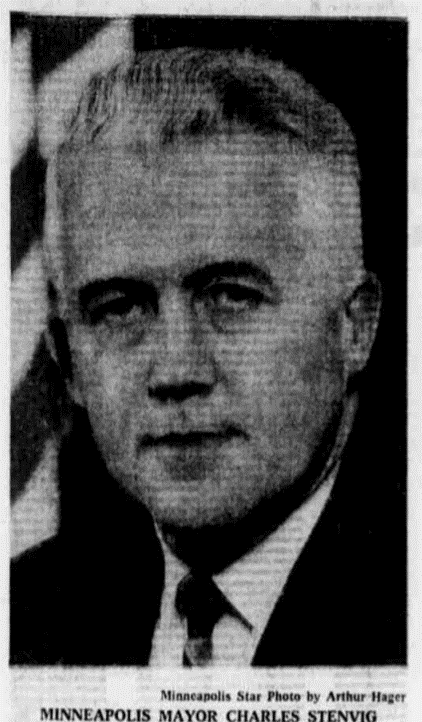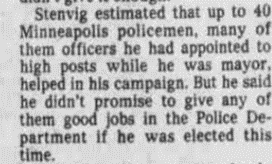The Minneapolis Police Department& #39;s record of racism and police brutality has a long history. In 1945, Minneapolis mayor Hubert Humphrey tried to reform the MPD through "education." Here& #39;s a pamphlet sent to the entire MPD in 1946 encouraging police to "discuss" race. (thread) 1/
Humphrey takes office in 1945 looking to be a civil rights reformer, believing that Minneapolis could serve as a local case study for national anti-racist reform. In 1948, HH would become a leading figure on civil rights, denouncing Jim Crow at the Dem. national convention. 2/
While the Minneapolis charter is "weak" and gives little authority to the mayor--power resides largely within city council--mayors can hire police chiefs. Here& #39;s an excerpt from HH& #39;s autobiography where he says the "quality of law enforcement is as good or bad as he
decides."3/
decides."3/
HH started with policing. One of Humphrey& #39;s first acts as Mayor in 1945 would be to nominate Edwin Ryan as police chief. Ryan was supposed to reflect a changed department, one unmarred by corruption and racism. He was pro-labor and pro-civil rights. But it did little good. 4/
Racism still ran rampant in the MPD. Humphrey then advocated community policing and education programs where police chiefs from other cities who adopted community policing tactics --like the author of the pamphlet--led seminars for MPD officers on handling "minority problems." 5/
These programs emphasized individual introspection upon the part of officers, not institutional overhaul of the MPD. Their goal was to bring police officers into schools to educate children on prejudice, presumption being they would be the next generation of police officers. 6/
This approach reflected the "weak" power of the mayor, but also liberals& #39; belief at the time that ending racism entailed gradual changes in individual attitudes, not radical reforms. HH founded a "Council on Human Relations," a Fair Employment Practices Committee, and...7/
sent surveys to Minneapolis residents inquiring about their attitudes on race relations, all which relied upon voluntary participation. This was a "victory" compared to decades of unchecked police violence toward Blacks, but these reforms failed to address structural racism. 8/
Move forward to 1967 when protests broke out in Minneapolis in the wake of Newark riots. Police brutality in the 50s and 60s was well-documented, but now with Black Power movement in Minn, activism increased. As one police officer said in 1967, "they stood up to us this time." 9/
Mayor Art Naftalin (a Humphrey protege) responded by expanding civil rights committees created by Humphrey, even as the state of Minn. received new Pentagon funds for more riot training for the National Guard. These headlines were published on the same day in the Star Tribune.10/
Naftalin was succeeded by Charles Stenvig in 1969, an "independent" former detective and head of the Minneapolis police federation during the 1967 protests. Stenvig knew little about city gov& #39;t but ran on "law and order," promising to protect white residents from "hoodlums."11/
Stenvig represented the white "backlash" of the 1960s. He was re-elected in 1971, beating civil rights activist and DFL member Harry Davis with 70 percent of the vote. While Stenvig lost re-election 1973, he was reelected again in 1975 for another two-year term. 12/
Stenvig left a legacy of putting police in positions in the Minneapolis gov& #39;t--he estimated 40 percent of gov& #39;t officials were former law enforcement by 1979--all while inheriting and expanding upon the militarization of the MPD that begun during Naftalin& #39;s administration. 13/
In many ways, this provides the context for Minneapolis today: the increased militarization of the MPD combined with a hallowed out social welfare state to address racial inequality in the city, and a city that reflects the racial segregation seen during Humphrey& #39;s mayoralty.14/
Yet this history also demonstrates the limits of liberalism, of liberals& #39; reluctance toward broader solutions--of a reliance on removing "bad apples," of creating municipal committees that make only gestural efforts at police reform. More is needed. 15/ https://theintercept.com/2020/05/29/george-floyd-minneapolis-police-reform/">https://theintercept.com/2020/05/2...
I& #39;ll end just by saying this material is from a book I was writing on Hubert Humphrey, but it is also reliant upon the scholarship of @stschrader1 (on DOD and police militarization), @elizabhinton (on liberalism and the carceral state), Jennifer Delton, and Iric Nathanson. end/

 Read on Twitter
Read on Twitter